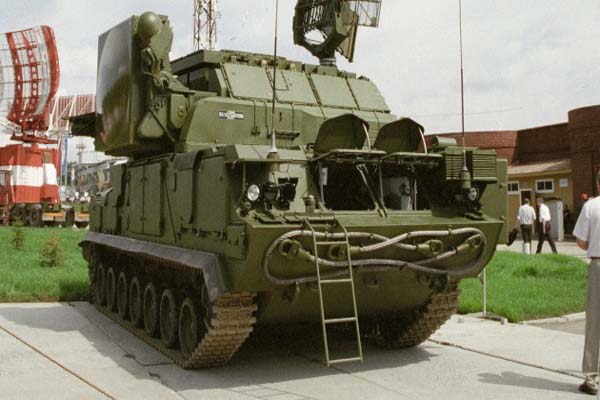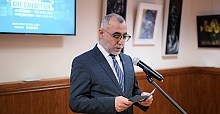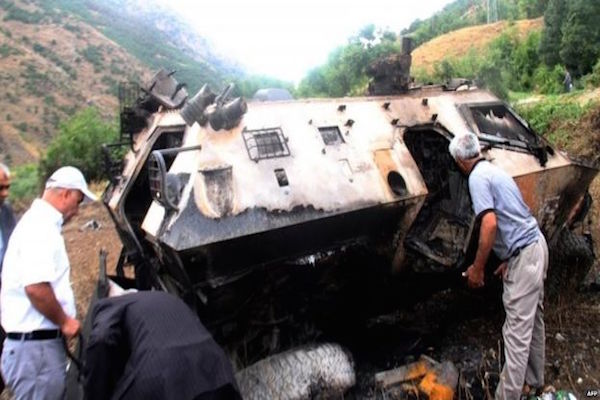The Tor antiaircraft system that Russia has proposed to Iran instead of the S-300 cannot be integrated into the country’s defense system, Iran’s ambassador to Russia said Monday. Ambassador Seyed Mahmoud-Reza Sajjadi said Iran had developed a national defense system “and within that system the proposed Tor system would be unable to fulfill the S-300’s functions.” Tor is an all-weather, short-range, surface-to-air missile system that can effectively engage aircraft, cruise missiles, unmanned aerial vehicles and ballistic targets. Russian Technologies (Rostech) CEO Sergei Chemezov said in late May that Moscow was trying to persuade Tehran to withdraw its lawsuit against Russia’s state-run arms export company Rosoboronexport over a canceled deal to supply S-300 air defense systems to Iran. Iran’s Defense Ministry and the Aerospace Industries Organization launched a $4 billion lawsuit against Rosoboron export in an international arbitration court in Geneva in April 2011. According to Iranian officials, Tehran will withdraw its lawsuit only if Russia fulfills the original contract.
The $800 million contract to supply Iran with the missile system was signed at the end of 2007. Moscow was to supply five S-300PMU-1 battalions to Tehran. However, in September 2010, Russian President Dmitry Medvedev signed a decree canceling the contract in line with UN Security Council Resolution 1929, which bans the supply to Iran of conventional weapons including missiles and missile systems, tanks, attack helicopters, warplanes and ships.
Tehran has insisted that the S-300 surface-to-air missile systems do not fall under the UN sanctions because they are considered defensive weapons.
Iran rejects Russia's Tor antiaircraft offer
Ambassador Seyed Mahmoud-Reza Sajjadi said Iran had developed a national defense system
10 Haziran 2013 Pazartesi 13:28
reads.



 After Nesil Caliskan a by-election will be held in Jubilee ward in Enfield
After Nesil Caliskan a by-election will be held in Jubilee ward in Enfield Publishing the analysis, Labour’s Cllr Ergin Erbil said Everybody in Enfield deserves basic rights
Publishing the analysis, Labour’s Cllr Ergin Erbil said Everybody in Enfield deserves basic rights Gaza-Israel conflict Statement from Cllr Ergin Erbil, Leader of Enfield Council
Gaza-Israel conflict Statement from Cllr Ergin Erbil, Leader of Enfield Council Cllr Ergin Erbil was elected as the new Leader of Enfield Council
Cllr Ergin Erbil was elected as the new Leader of Enfield Council The European Union called on Turkey to uphold democratic values
The European Union called on Turkey to uphold democratic values Turkish citizens in London said Rights, Law, Justice
Turkish citizens in London said Rights, Law, Justice The Council of Turkish Cypriot Associations Geneva response letter
The Council of Turkish Cypriot Associations Geneva response letter Sustainable Development and ESG, Will This Become the Course for Turkic World
Sustainable Development and ESG, Will This Become the Course for Turkic World Saran Media And Euroleague Basketball Extend Media Rights Partnership for Four More Years
Saran Media And Euroleague Basketball Extend Media Rights Partnership for Four More Years Will Rangers be Jose Mourinho’s next victim?
Will Rangers be Jose Mourinho’s next victim? Jose Mourinho's Fenerbahce face Rangers on Thursday
Jose Mourinho's Fenerbahce face Rangers on Thursday Inzaghi stated that they felt the absence of our national player Hakan Çalhanoğlu
Inzaghi stated that they felt the absence of our national player Hakan Çalhanoğlu Trial used smart Wi-Fi sensors for live building occupancy data to optimise
Trial used smart Wi-Fi sensors for live building occupancy data to optimise Enfield Council at a special awards ceremony
Enfield Council at a special awards ceremony Enfield Council continues to invest in Edmonton, supported by £11.9 million in funding
Enfield Council continues to invest in Edmonton, supported by £11.9 million in funding Survey shows improvements in Enfield Council’s housing services
Survey shows improvements in Enfield Council’s housing services



















